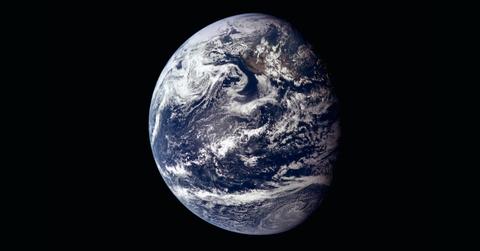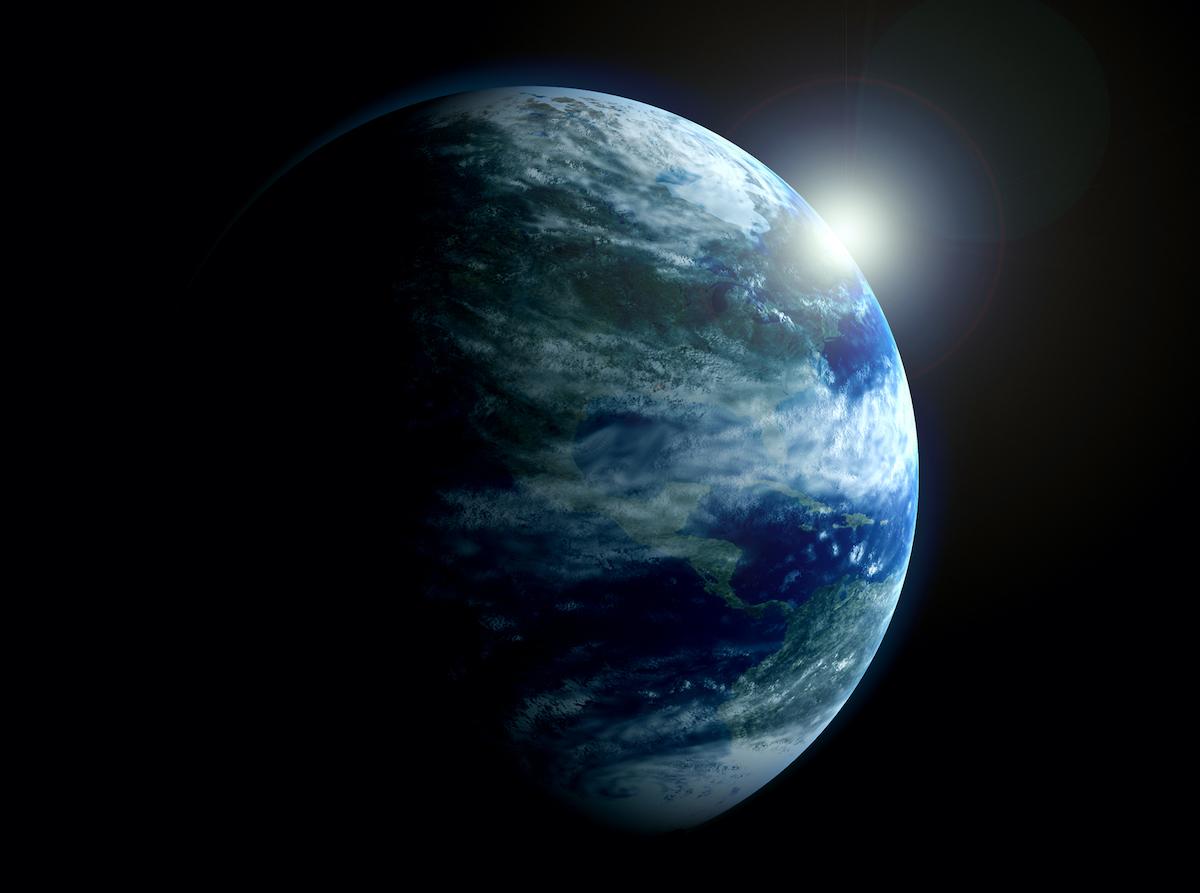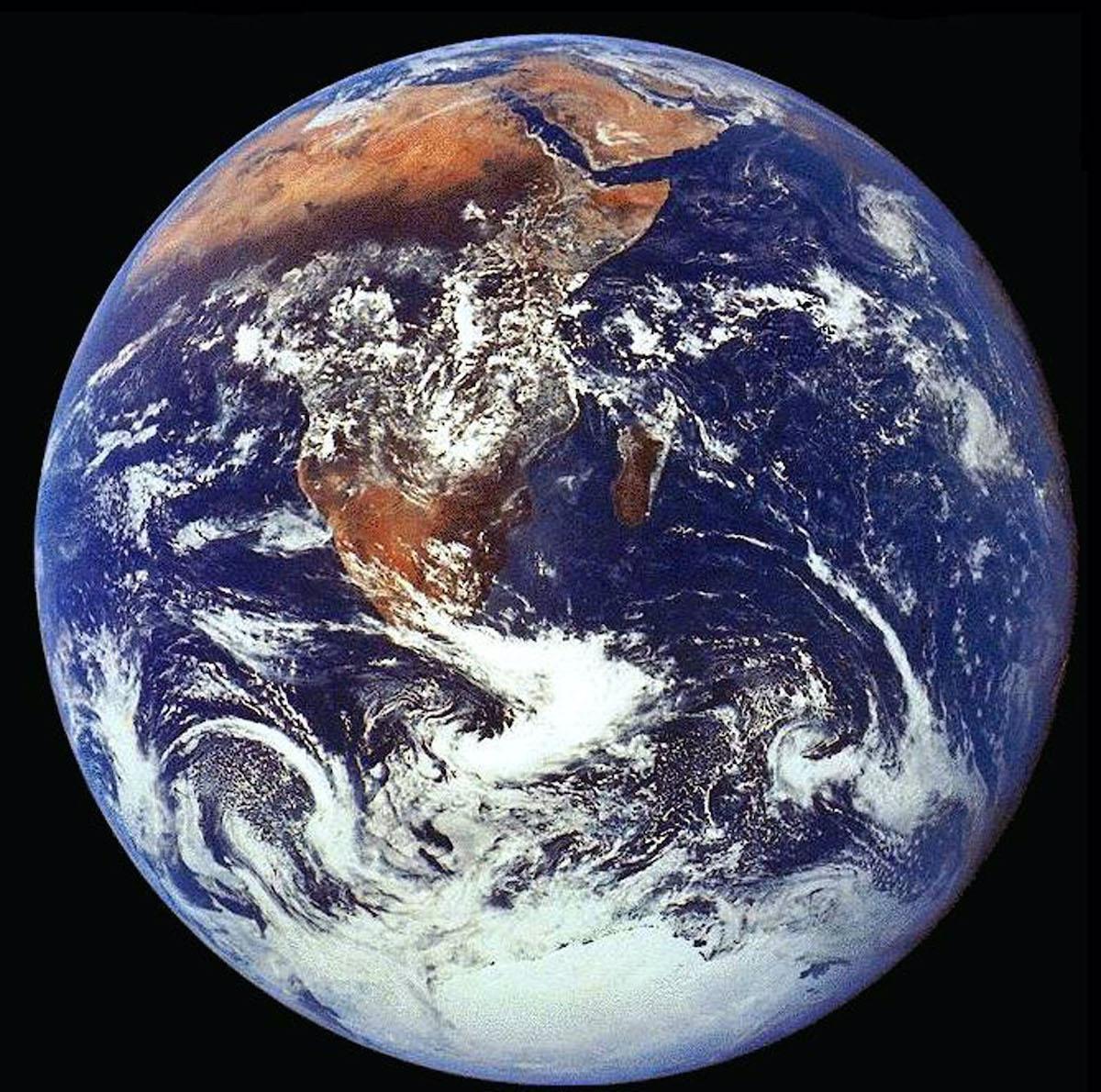Could The Earth Stop Spinning? Here's What Would Happen
Could the Earth actually stop spinning?
Published Nov. 18 2020, 1:56 p.m. ET

If you’ve ever had your heart broken, you know all too well what it feels like for the Earth to stop spinning — metaphorically, at least. But is this turn of phrase based in reality? Could the Earth actually stop spinning? More importantly, what would happen if the Earth stopped spinning?
Read on for everything you need to know about why the Earth spins, if the blue marble could actually stop spinning, and what would happen if it did.
Could the Earth ever stop spinning?

There’s not a lot we can rely on in life, but one guarantee is that the Earth will never stop spinning. As Dave Consiglio, a professor of Chemistry and Physics, wrote for Forbes via Quora: “spin appears to be something woven into the fabric of our universe.”
Even if billions of years from now the Earth’s oceans dry up and the planet becomes a “seething ball of scorched rock,” it will still spin.
Essentially, spinning objects will keep spinning unless there is a change in energy or friction big enough to stop it — and while that happens easily with objects like dreidels, spinning tops, fidget spinners, and pinwheels, there’s nothing in outer space large enough to slow the Earth’s spin more than a miniscule amount.
What does the Earth spin on?
The Earth has spun on its axis since the planet came into being more than 4.6 billion years ago.
Does Earth spin clockwise or counterclockwise?
The Earth’s technical rotation direction is prograde, which means it rotates from west to east. If you were to float above the North Pole and watch the Earth’s rotation, it would appear to move counterclockwise.
Why does the Earth rotate?

Billions of years ago, the solar system was born out of a nebula, which is a giant cloud of gas and dust.
The nebula first formed a star, and gravity caused the star to move in a circular orbit. The nebula continued forming other space objects, including the sun, the Earth, and other planets; as it did so, the sun and planets began to rotate, too.
“Any clump that forms within that disk is going to naturally have some sort of rotation,” Penn State astronomy professor Kevin Luhman told Phys.org.
As the sun and planets became more compact, they began to spin even faster. That’s because as a spinning entity becomes more compact, its speed increases — much like how an ice skater or dancer will bring their arms closer to their body to increase the speed of their spin, as pointed out by The Conversation.
What happens if the Earth stops spinning?
As scientists have established, the Earth is not going to stop spinning in our lifetimes, or for billions of years. Phew. But what if some unforeseen force invaded outer space and actually slowed the Earth’s rotation enough to completely stop it?
Let’s just say, it wouldn’t be good.
According to BBC Science Focus Magazine, if planet Earth suddenly stopped spinning (for example, if it arrived at a hard stop over the course of 60 seconds), things like the atmosphere and oceans would continue spinning, while everything else would be wiped out. Basically, the Earth suddenly stopping its rotation would completely destroy everything on the Earth’s surface.
If the Earth slowly stopped spinning over the course of several years, the oceans would move toward the poles, and the oceans surrounding the equator would completely dry up, splitting the Earth’s oceans into two large polar oceans separated by dry land. Oh, and half the world would be underwater.
The Earth rotates on its axis once every 24 hours, which is why we have 24-hour days, traveling at about 1,000 mph. If the Earth stopped spinning on its axis, one day would last for an entire year, and everywhere on Earth would receive six months of continuous sunlight instead of daily sunlight and darkness; this would heat the planet up to drastically high temperatures (BBC Science Focus Magazine estimates about 100 degrees Celsius or 212 degrees Fahrenheit), which could not support human life.
Basically, life on Earth depends on the planet’s ability to spin — and fortunately, that rotation isn’t going anywhere. With all that planet Earth gives us, the least we can do is respect our shared home by living sustainable and fighting for environmental protections.